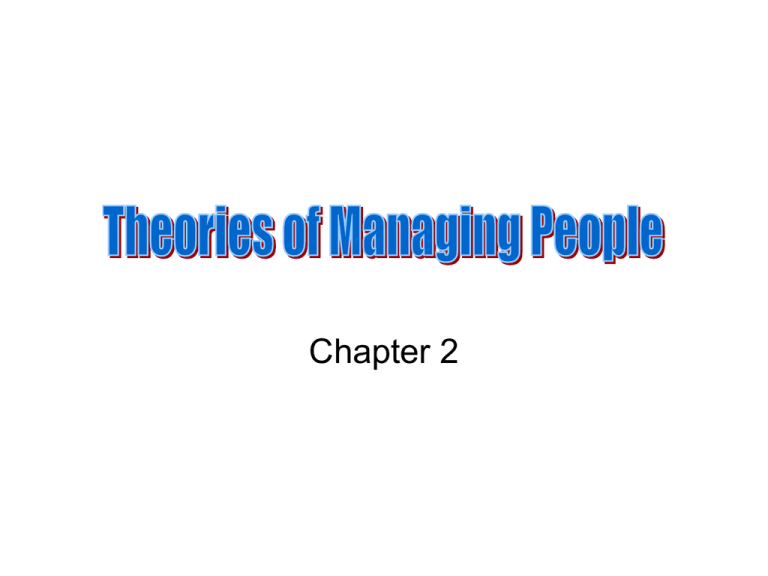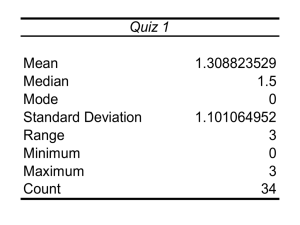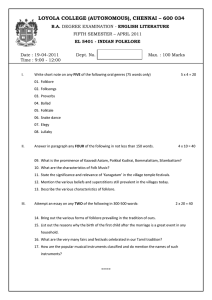Chapter 2
advertisement

Chapter 2 Objectives • Examine theories and perceptions of management • Explain the competing values framework • Explain why it’s important to identify your personal theories about management and ob • Relate to Theory X and Theory Y philosophies Our personal theories determine what we see and how we act Competing Values Framework of Leadership Human Relations Open Systems __________________________________ Internal Process Rational Goal Competing Values Framework Roles Ope n-Sys te m s M ode l Cooperative, Team-Oriented Style Quinn's Roles. The Positive and Negative Zones Competing Values Model • Greatest strength can be transformed into the greatest weakness • Master managers analyze the situation and balance the competing values of different theories Managerial Work: Folklore - Managers are reflective, systematic planners. Fact - Their fast-paced activities are brief, varied, and discontinuous. Folklore - Effective managers have no regular duties to perform. Fact - They perform regular duties in addition to handling exceptions. Folklore - Senior managers need aggregated MIS information. Fact - Managers favor verbal media—phone calls and meetings. Folklore - Management is becoming a science and profession. Fact -Managers’ programs are locked in their heads. Managing on 3 Levels • Through Information: – communicating by collecting and disseminating information • Through People – Leading - directing, coaching and inspiring individuals, groups and units – Linking – networking and gate-keeping • Through Action – Doing by being involved in projects, negotiations, etc. Assumptions about Human Nature Theory X Lazy Work for money and status rewards Want direction Need close supervision Resist change Incapable of growth Theory Y Enjoy striving Find various satisfactions in work Responsible Capable of selfdirection Enjoy new experiences Enjoy growth and learning



